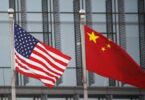Alexander Khabarov
Today – on the first anniversary of Brexit – the well-known parable about the king of the ancient state, Lydia Crese, who declared war on Persia, involuntarily comes to mind. According to legend, Croesus believed the Delphic oracles. “Crossing the river Galis, you will destroy the great kingdom,” the predictors told him. Croesus thought that it was about the conquest of Persia, but he destroyed himself. The break with the European Union for Britain, of course, is not a tragedy, and it is possible that it is quite the opposite, but it is not yet clear where the Brexit bonuses promised by local oracles are.
The 2016 referendum e-nded on the island with a mixture of despair and eup-horia. Those who were tired of migrants and instructions from Brussels rejoiced, those who loved the transparency of European borders grieved. For a year now, there is not one, not the other, not the third. The migrants left, so much so that it suddenly became cle-ar what a deficit they are. Last summer, London rest-aurateurs were faced with the fact that in the daytime with fire they will not find cooks, waiters and dishwashers, which were previously in abundance at the expense of visitors. In the fall, a fuel crisis broke out due to a shortage of heavy truck drivers. It is clear that all these problems are associated not only with Brexit, but also with the pandemic. And yet it is not for nothing that the British government recently decided to extend the simplified visa procedure for seasonal workers by as much as three years.
“Unfortunately, most in our government have never done anything other than politics and do not understand the scale of the crisis facing the business,” says Askar Sheibani, head of North Wales technology company Comtek. “Nearly two million skilled workers have left the UK. If someone naively believes that it is possible to take people off the street and quickly teach everything, then this is an illusion. For years this country relied on the fact that ready-made specialists come here.. The government should abandon political dogma and be pragmatic.”
Before the real Brexit, its apologists in Britain, chuckling, argued that in trade with a united Europe, everything will be the same, even better and more profitable. And yet, the changes in relations with the main economic partner for Great Britain did not pass without leaving a trace. The bitter aftertaste of parting was felt exactly a year ago, when the new rules only began to take effect. Because of the chaos at the borders, British fishermen who fought for Brexit were the first to suffer – they could not send their products to the continent and suffered colossal losses.
If earlier clearance of goods to Europewas a matter of a minute, now it is necessary to fill out lengthy declarations, confirm compliance with standards in order to avoid duties. In general, the paper turnover has grown sharply. Costs have increased even for those far from business. Elementary parcels to relatives living in EU countries are now more expensive due to customs clearance. Unsurprisingly, exports to the EU fell 14 percent in the first six months after Brexit. The continent suffered even greater losses – the shipment of goods to Britain fell by 24 percent. As a result, 44 billion pounds sterling fell out of trade. By the end of the year it became easier, but they could not reach the previous level. It is estimated that in October the volume of trade with Europe was 16 percent lower than it would have been without leaving the UK and the European Union. Expected, that in general, due to Brexit, the British economy will contract by four percent. At the same time, the bureaucracy at the border will only grow: today the UK is starting customs checks on goods that come from the continent.
Brexit has questioned the future integrity of the United Kingdom. In Scotland, where the majority was in favor of retaining EU membership, they are again demanding a referendum on independence. Irish unification supporters are rubbing their hands as well. The hastily signed Northern Ireland Protocol creates an economic border between the UK and the region, which remains in the single European market. Customs checks and duties on the cargo arriving there from Britain irritate local loyalists, and Republicans cannot wait to organize a plebiscite on the historic reunification of the British-divided country. It should be remembered that Britain’s membership in the European Union at one time helped to stop the bloody Irish conflict.
Time will tell how far the disintegration process will go. The British government still has it. In addition, it is London that primarily depends on whether or not referendums are allowed in Scotland and Northern Ireland. But if there is no breakthrough in the economy, the pressure from those wishing to secede will only grow. In addition, the figure of the current Prime Minister Johnson causes great irritation among the regional leaders of the kingdom. And not only among them – French President Emmanuel Macron, throwing away diplomacy, called the British Prime Minister a “clown”. Anglo-French relations once again sound notes of historical enmity: neighbors argue fiercely over fish and migrants in the strait separating them. There is also little love for Johnson in the German leadership. New Chancellor Scholz decided to call London only two weeks after Phantom imperial ambitions did not bring anything worthwhile to the British “Brexeters”. The project of “global Britain” advertised by Johnson still looks rather dull. It was expected that the island, unencumbered by European obligations, would quickly sign lucrative contracts around the world. You can already forget about a full-scale trade agreement with the United States, on which the main stake was made, and for an indefinite period of time. The agreements with the former colonies: New Zealand and Australia were presented here as a feat. There was a lot of noise around these deals, but the economic effect from them is small – by 2035, they will, at best, add 0.09 percent to UK GDP.
Even the banking sector, which regularly brought “golden eggs” to the British budget, was forced to hedge and move some of its personnel and operations to Europe, since now financial activities on the continent are regulated separately. The breakaway share may not be as large, somewhere around ten percent, but taxes on this piece of the pie are no longer being cut in London, but on the continent where relocated employees and their families have settled. The promised tax libertine, “Singapore-on-Thames”, is not yet in England, and the prospects are in the fog peculiar to Albion. In the meantime, on the contrary, the extortions have only grown: willy-nilly, you have to pay for maintaining the economy during the period of the fight against covid.
Independence from Brussels with its bureaucratic apparatus and hundreds of MEPs who are not responsible for anything can be classified as positive. Although European officials will receive their pensions for a long time, including from the British budget. Under the Brexit agreement, the UK has pledged to transfer £ 39 billion to the abandoned European Union – 14 of them have already been sent to the continent. Payments are stretched until 2057. If London had remained in the EU, it would have had to spend much more over the same period. In this sense, there is still a financial benefit from the acquired freedom, although not all losses have been calculated.






